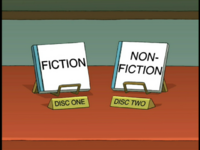The world ends tomorrow, you can't stop it and you will die. You can, however, put information on a hard drive(s). What information has the best ratio of "days until world back to pre apocalypse state" reduction per gigabyte?
General assumptions:
- The largest amount of data that can be used is 10TB (raw, compression will probably increase this), and it is transferred immediately (internet speed is not a limitation)
- The hard drive(s) are found, intact and readable (this includes language, electricity and a windows machine) by the finder.
- Most of humanity dies, but everything else is intact (except for things that need active maintenance from humans, for obvious reasons).
- The person who finds the hard drive is part of a group of 150 survivors who all have the goal of "resetting" the world.
- The most technically competent person in the 150 survivors has started programming/used the command line a couple of times/installed linux/will be able to find and read a README or similar
"pre apocalypse state" can be measured as:
- Research is taking place (and common) that would not be out of place/receive grants/published in journals if it happened today.
- Global supply chains and infrastructure are restored (I can buy a phone that can call someone on the other side of the planet and tell me my position to the nearest 5m)
EDIT: A better phrasing/version of the question would be "How does the best knowledge change with starting population/education levels?"

